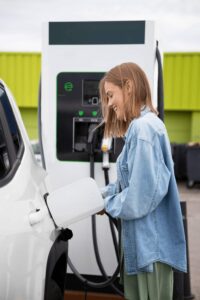Saving fuel is not only a matter of household budgeting, but also of sustainability and safety. With fuel prices constantly rising, many drivers wonder: how to improve car fuel efficiency? In this article, we share the most effective strategies to reduce fuel consumption, improve your driving style, and extend the lifespan of your vehicle.
Efficient Driving: The Key to Saving Fuel
Efficient driving is crucial for improving fuel efficiency. The way you drive has a direct impact on how much fuel your car consumes. To drive safely and economically, adopt these habits:
Avoid sudden acceleration and hard braking. Smooth driving can reduce fuel consumption by up to 15%.
Shift to higher gears as early as possible. Lower engine revs mean lower fuel usage.
Maintain a steady speed. Use cruise control on highways if your vehicle is equipped.
Anticipate traffic by observing the road ahead to minimize unnecessary stops and starts.
How Vehicle Maintenance Helps Improve Fuel Efficiency
A well-maintained car consumes less fuel. Here’s what you should check:
Keep tires inflated to the recommended pressure. Low pressure increases fuel consumption.
Change the oil and filters as recommended by the manufacturer. A clean engine runs more efficiently.
Inspect the exhaust system and catalytic converter. Faulty components waste fuel and increase emissions.
You can also consider convenient services like home fuel delivery to avoid unnecessary trips to the station.
Fuel Efficiency and Vehicle Ventilation
During hot weather, drivers often ask: how to improve car fuel efficiency while using air conditioning? Climate control has a notable impact:
Ventilate the car before turning on the AC, especially if parked in the sun. Open doors or windows briefly to release hot air.
Use air conditioning moderately. At high speeds, it’s more efficient than open windows; at low speeds, try not to use it.
Don’t leave the AC running while idling—it’s one of the most common ways to waste fuel.
Weight and Aerodynamics: Hidden Enemies
Reducing weight and drag is a simple way to improve car fuel efficiency:
Remove heavy or unnecessary items from the trunk.
Take off roof racks if not in use—they negatively impact aerodynamics.
Don’t use your car as a mobile storage unit.
An extra 100 kg can increase fuel consumption by about 5%—an avoidable cost.
Route Planning and Smart Refueling
Planning your trips well is a key strategy to save fuel:
Combine errands into a single trip.
Avoid rush hours to reduce time spent idling in traffic.
Use apps or GPS tools to find the quickest, most efficient routes.
If you’re located in the Granada area, you can also benefit from home fuel delivery services in Granada to avoid unnecessary trips.
When Does Your Car Use the Most Fuel?

City Driving: Highest Consumption
Driving in the city typically leads to the highest fuel consumption due to frequent stops, starts, and idling in traffic, which puts more strain on the engine.
Highway Driving: Most Efficient (With Limits)
Open roads allow for steady speeds, which improves fuel efficiency. However, at speeds above 120 km/h (around 75 mph), aerodynamic resistance increases sharply, reducing efficiency.
Mixed Consumption
This is the average between urban and highway driving. Manufacturers use it as a reference, but your actual results will depend on your driving habits and trip types.
Conclusion: Small Changes, Big Results
If you’re wondering how to improve car fuel efficiency, the answer lies in conscious driving, regular vehicle maintenance, and smart decisions about refueling. By following these tips, you can save money, reduce emissions, and improve your driving safety.
If you’re looking for a convenient and reliable way to refuel, consider home diesel delivery services, especially in Granada, to keep your vehicle road-ready at all times.
